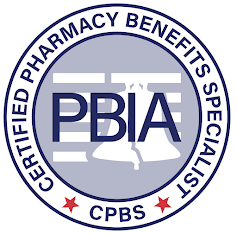The path to cheaper prescription drugs runs through PBMs and other notes from around the interweb:
- Employer Coverage of GLP-1 Drugs Jumps. As the popularity of GLP-1 drugs like Ozempic and Wegovy grows, so does the percentage of employers covering the drugs for employees. A new employer survey out June 13 from the International Foundation of Employee Benefit Plans (IFEBP) found that employer coverage of the drugs is up 8 percentage points since last fall, with roughly one-third of companies now offering GLP-1 drug coverage for both diabetes management and weight loss. More than half of employers (57%) currently provide coverage for diabetes only—the original intended use for the drugs—up from 49% in 2023. Perhaps even more significant, 34% provide coverage for both diabetes and weight loss (up from 26% in 2023), according to the benefits organization’s May survey of 279 employers. IFEBP, which counts some 31,000 organizations as members, last surveyed employers abut GLP-1 drugs in October 2023. It’s a big jump that shows employers are getting serious about coverage of the drugs, especially as employees express interest, said Julie Stich, vice president of content at IFEBP.
- Mail-Order Drugs Were Supposed to Keep Costs Down. One employer was paying about $100 for a prescription for a generic antidepressant, though it could be bought elsewhere for about $12. A key tool that businesses have counted on to keep a lid on employees’ drug spending—filling workers’ prescriptions by mail—is now driving up their costs. Unity Care NW, a nonprofit health clinic in Washington state, forecasts the cost of medical and drug benefits for its 365 employees and their family members will increase this year by 25% to more than $3 million. A big reason: Drugs delivered by mail are costing multiples more than those picked up at a store counter. Markups were as much as 35 times higher than what other pharmacies charged, according to a recent analysis of millions of prescriptions in Washington state. The stakes nationally are huge, in a medical market with escalating prescription prices and increasing concentration of medical providers in direct employment by hospital groups.
- The path to cheaper prescription drugs runs through PBMs. The power of PBMs to determine what drugs insurers will cover has also negatively impacted patient access and costs. PBMs charge drug manufacturers administrative and other fees in exchange for insurance companies covering those drugs. These fees are linked to the retail price of a drug. As a result, PBMs prioritize more expensive brand medicine. If a brand arthritis medicine, for example, nets a PBM $200 in fees, but the generic version of it would only earn them $30 in fees, it’s easy to guess which one a PBM will make sure insurers cover. The PBM market is broken. It has become a profit center for big health care companies that is hurting patient access and driving up costs. PBMs now take nearly 50 cents of the retail price of many prescription drugs. That’s more than some drug companies take home. Novo Nordisk, for example, recently told the Senate Committee on Health, Education, Labor, and Pensions that it receives just 25% of the list price of the medicines it manufactures.
- Tricare PBM contract anti-competitive, lawmakers allege. A group of twenty-four lawmakers expressed concern Express Scripts could be limiting Tricare beneficiaries’ choice of pharmacies. In a June 26 letter to the director of the Defense Health Agency and the assistant secretary of defense for health affairs, lawmakers alleged Express Scripts has “leveraged its market power to squeeze independent pharmacies and steer Tricare beneficiaries to their own mail-order pharmacy.” The lawmakers also expressed concern that the government could be overpaying for drugs dispensed by Express Scripts. In their letter, the lawmakers cited a Wall Street Journal investigation that found that Express Scripts charged insurers 27.4 times more for drugs than Cost Plus Drugs Co.
